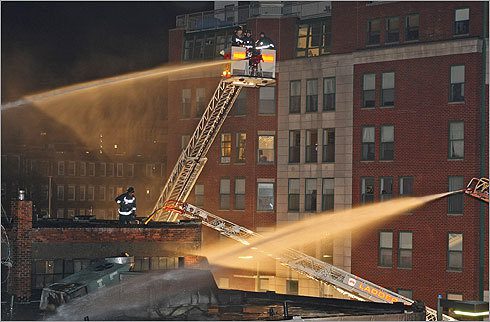The other day the brakes went out on a fire truck as it drove down a steep side street in a Boston neighborhood. The truck careened across a busy street and smashed into an apartment building, killing one of the firefighters. Fire union leaders quickly went on the warpath, accusing their superiors of neglecting proper maintenance.
A few days before, a pair of fires had ravaged a block of popular restaurants in a nearby neighborhood, and a fire in another area of the city charred a hair salon.
Only the last of these appears to clearly be arson, but the spate of fires, together with the tragic fire truck incident, made me think about what might happen to public services as the economy continues its downward spiral. It also reminded me of the bad old days of arson-for-profit, in the 1970s and 1980s, when many property owners set their buildings afire to collect insurance money.
When arson was profitable three decades ago, Boston was still a city emerging from years of economic decline. It was coping as well, like most U.S. cities, with years of white flight and redlining. No one would say that the current economic situation will cause people to abandon the back-to-the-city movement.
What is happening is that real estate prices, which had climbed rapidly earlier in the decade, have stalled or begun to fall in some areas. Tax assessments aren’t about to fall much, though, and many people who borrowed heavily for their commercial real estate deals are now in big trouble financially. Talk is that real estate investors may be the next ones asking for a federal bailout.
Under these circumstances, property owners and developers may be under some pressure to save their hides. Could arson suddenly look like a reasonable option again?
The other threat I mentioned, declining public services, is perhaps scarier to people living in crowded urban neighborhoods. They depend on the fire and police services, of course, as well as public works for garbage pickup and street cleaning. When Boston cut its police force a few years ago, crime rates quickly shot up. The mayor learned his lesson and beefed up the force, and brought the statistics back under control. So far, there has been no talk of cutting such vital services again, but such cuts can be made in ways that are less open to the public.
Not to indulge in conspiracy theories. It’s just a highly unsettling time in the big city, even one that is a lot wealthier than most.





Comments